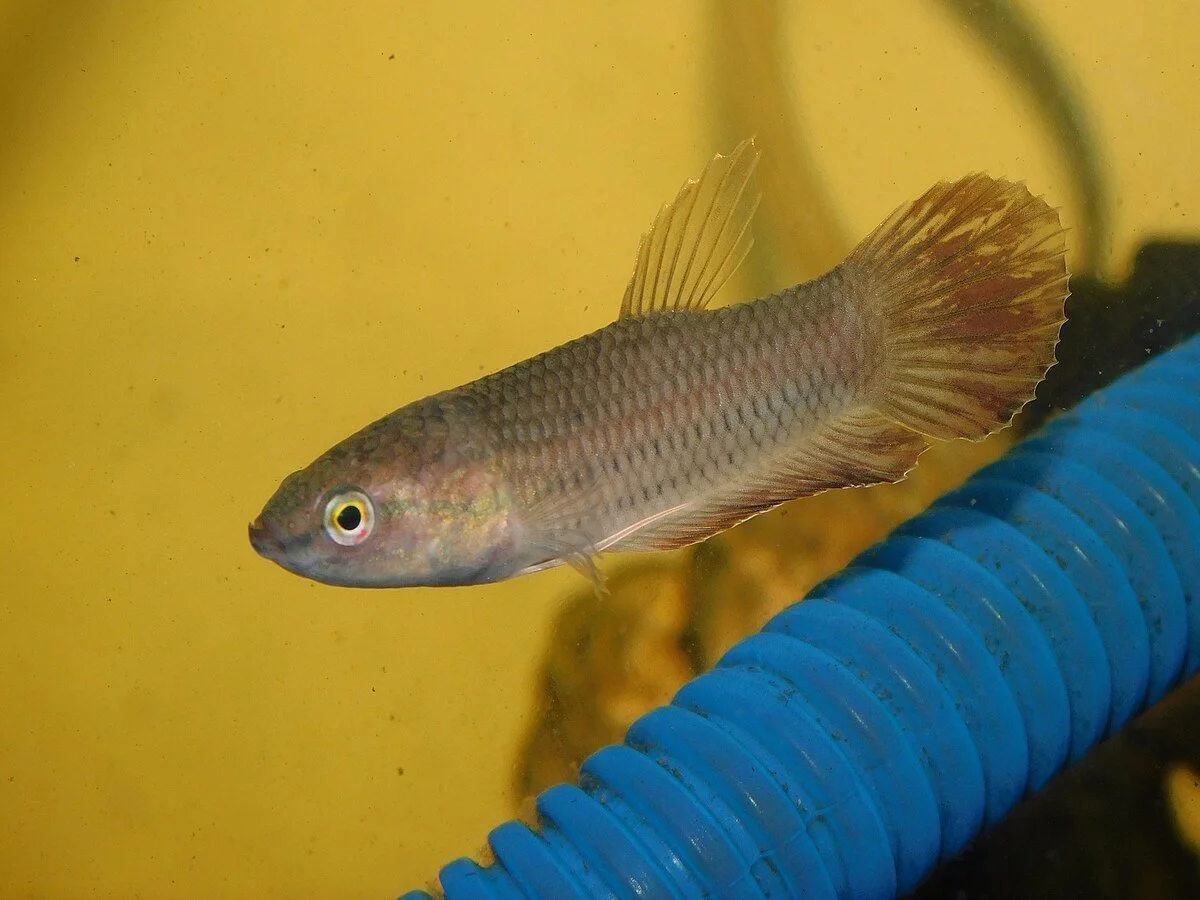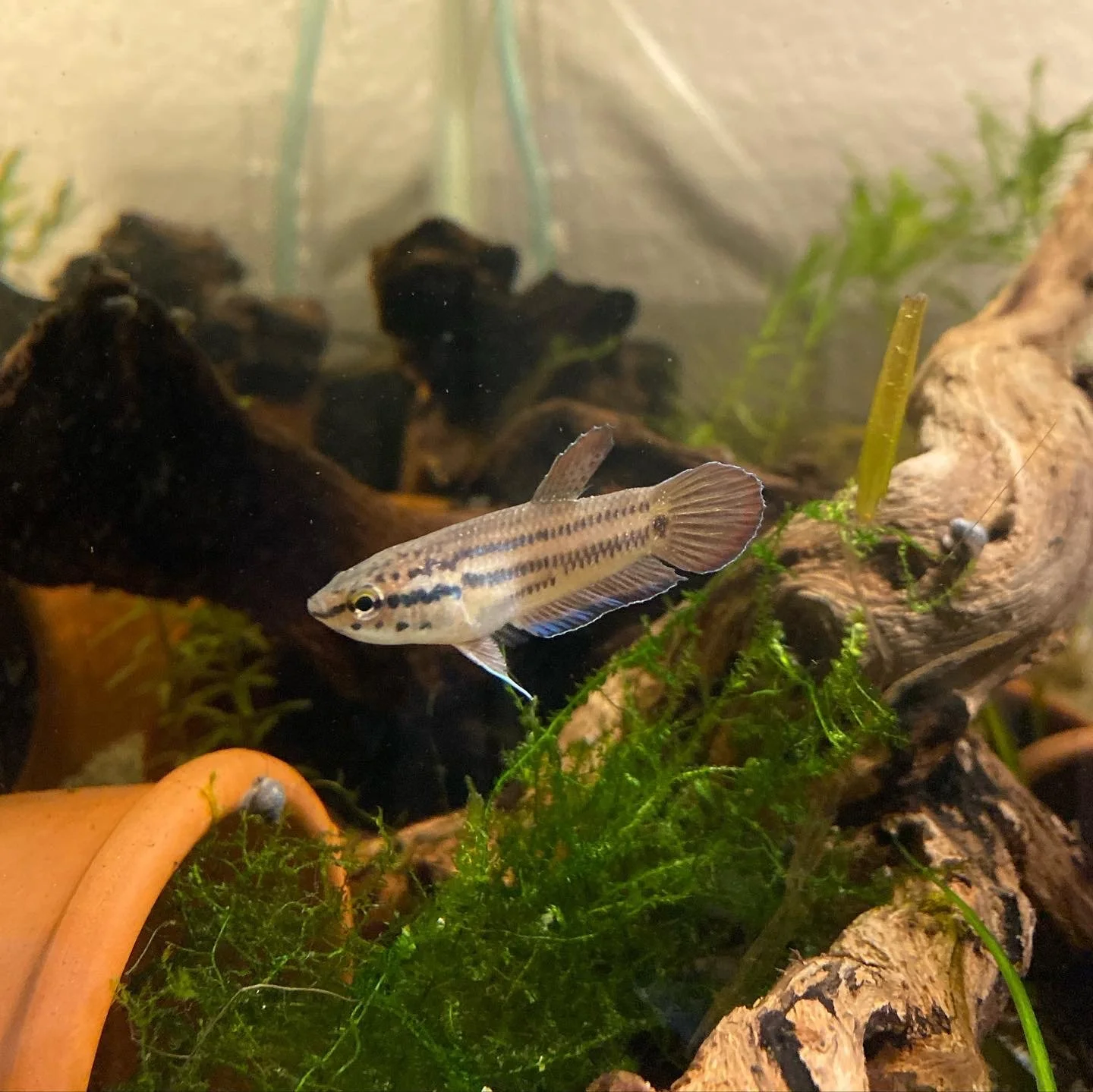

Betta Picta
The Betta Picta, also known as the Spotted Betta, is a freshwater fish native to Indonesia, particularly in slow-moving streams and shaded forest waters. Unlike the more common Betta splendens, Betta picta is less aggressive and more community-friendly, making it easier to keep with peaceful tankmates. It is a mouthbrooding species, with males carrying the fertilized eggs in their mouths until they hatch. This behavior makes them fascinating to observe in the aquarium.
Care Guide
Tank Size: Minimum 20 gallons recommended, especially for groups.
Water Conditions: Temperature 22–27°C (72–81°F), pH 6.0–7.5, Hardness 5–20 dGH.
Diet: Carnivorous; thrives on high-protein foods including quality pellets, live, and frozen foods such as bloodworms, brine shrimp, and daphnia.
Temperament: Relatively peaceful for a betta; can be kept in groups and with other non-aggressive species.
Tank Setup: Provide dense planting, hiding spots, and subdued lighting to mimic their natural environment. A gentle filter current is ideal.
Tankmates: Suitable with small, peaceful fish like rasboras, small tetras, and corydoras. Avoid aggressive or fin-nipping species.
Lifespan: Typically 3–5 years in captivity with proper care.
Key Tip: As a mouthbrooding betta, the male will protect and carry eggs—avoid stressing breeding pairs during this period.
Size: 5–6cm
WHOLESALE
The Betta Picta, also known as the Spotted Betta, is a freshwater fish native to Indonesia, particularly in slow-moving streams and shaded forest waters. Unlike the more common Betta splendens, Betta picta is less aggressive and more community-friendly, making it easier to keep with peaceful tankmates. It is a mouthbrooding species, with males carrying the fertilized eggs in their mouths until they hatch. This behavior makes them fascinating to observe in the aquarium.
Care Guide
Tank Size: Minimum 20 gallons recommended, especially for groups.
Water Conditions: Temperature 22–27°C (72–81°F), pH 6.0–7.5, Hardness 5–20 dGH.
Diet: Carnivorous; thrives on high-protein foods including quality pellets, live, and frozen foods such as bloodworms, brine shrimp, and daphnia.
Temperament: Relatively peaceful for a betta; can be kept in groups and with other non-aggressive species.
Tank Setup: Provide dense planting, hiding spots, and subdued lighting to mimic their natural environment. A gentle filter current is ideal.
Tankmates: Suitable with small, peaceful fish like rasboras, small tetras, and corydoras. Avoid aggressive or fin-nipping species.
Lifespan: Typically 3–5 years in captivity with proper care.
Key Tip: As a mouthbrooding betta, the male will protect and carry eggs—avoid stressing breeding pairs during this period.
Size: 5–6cm
WHOLESALE
